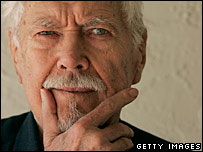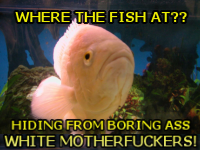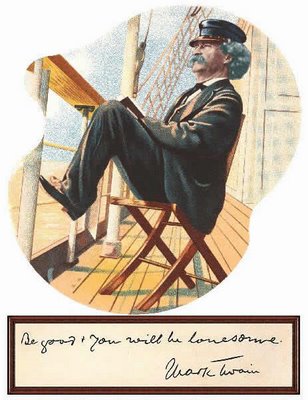
Tuesday, November 21, 2006
Thursday, July 20, 2006
You Know
----
Apparently, when a white motherfucker go out in they boats they need to know where the fish at. This gadget fires out some of that radar and blows all that data up on the display. So those pasty niggas row they
 asses out where ever the fuck Garmin tells them to row they asses to and they throw they lines in. Must be a motherfucking blast for white people, but for serious that sounds like some boring ass shit...
asses out where ever the fuck Garmin tells them to row they asses to and they throw they lines in. Must be a motherfucking blast for white people, but for serious that sounds like some boring ass shit...*BLIP*
*BLEEP*
THE FISH TO THE RIGHT MOTHERFUCKER
To sum this shit up, we don't know a fish finder because, niggas aint trying to find no fish. We leave that shit to the sleepy heads and those country ass Huckleberry Finn niggas. If Garmin wanna boost they nigga profits on they line of Finder units then Garmin gotta help a nigga find shit a nigga looking for like white breezies or the identity of that nigga who pretending to be TUPAC on them new cuts. Any way I'm out on that shit.
----
Other reviews focus on remote controls, 'jacks', and downloadable movies. All very helpful, and worth your free time.
Tuesday, May 09, 2006
Her Voice is Able

The third record by Jolie Holland was released to music stores today, so they can sell it to you and you can go "coo, coo". Jolie is a much-admired singer and songwriter originally from Texas, but then she moved to San Francisco, where she lives now with 400 puppies and snakes. She's true blue, if that's important to you. I once met her after a show in St. Augustine and told her she was amazing. She said, "Precious."
A couple mp3's are around her myspace page, as long as they're around.
Sunday, April 23, 2006
Monday, April 03, 2006
Head Check

The measurement of brain volumes is a wide and imprecise science that has something in common with the type of generalist thinking that engenders sciences like phrenology or palmistry. Which aren't sciences. Because of the broad correlations between brain size, complex behavior, and evolution, a number of analyses have been applied to investigate these assumptions underlying the development of intelligence and the emergence of cognition. We begin with the assumption that bodies are ‘run’ by their brains, and that an increase in body size would lead to an increase in size of the controlling organ. Also within the background of our thinking is the idea that bigger brains equal better brains: more neurons, more processing, more developed intelligence. But how can we represent these general ideas in a more careful analysis that tells us something significant about brains and behavior?
The devil, of course, is in the details, and it is likely the constituents characteristics of a nervous system that may reveal the significant volume-dependent factors for the emergence of cognition. Cortical folding, lobe development and more extensive brain-body scales have come to describe how the brain as an organ might have anything to do with the body. Fifty years ago Von Bonin evaluated the index of cortical folding (IFC) as a ratio of the total cortical surface (unfolded) to the exposed cortical surface. The measure, however, is largely confounded as a marker of ‘intelligence’ by generalizations across cladistic orders; as a group, cetaceans have evolved extraordinarily high IFCs, larger than most mammals, yet not all whales and dolphins are seen as of the same intelligence. In order to parse apart these differences within orders, the 19th century neuroanatomist Olaf Snell devised an equation using specific ‘scaling effects’ to find the encephalization quotient (EQ) of particular species,
E=csr
where E is the weight of the brain, S is the body weight, C is a constant ‘cephalization factor’, and r is an empirically determined exponential constant for a given order. The EQs for various mammalian species include:
Dolphins 5.31
Chimps 2.47
Rhesus monkeys 2.09
Elephant 1.87
Whale 1.76
Dog 1.17
Cat 1.00
Rat 0.40
Though crude, the equation does help represent a statistic that better reflects relative brain size and cognitive intelligence. Man ends up at the top of the heap with an EQ of 7.44, while dolphins and chimps follow after, supporting the large comparative literature that uses those subjects as models for ‘intelligent behavior’. I remain glibbly mum about what it says about cats.
A problem with the use of these measures, however, is that they all treat the brain as a unitary organ; cognitive neuroscience posits that component processes are driven by differential neural activity. In order to make assumptions about intelligence we must define what component processes (and component brain areas subsuming those processes) inform our notions of intelligence and awareness. Would an animal with a brain that is 20% of its body mass but 97% sensory & motor cortex be smarter than an animal with more primate-like proportions? Even regionally-based analyses of comparative neuroanatomy have their own problems. As regions in the PFC become more functionally defined (e.g., the DLPFC is a ‘working memory’ area), comparative distinctions become more difficult. Behavioral analogues of executive functions are notoriously difficult to find even in higher primates, let alone species that might share a similar IFC or EQ across cladistic orders.
And, of course, why are the measurements of relative or absolute brain sizes important, besides inflating our own species’ egos? Each species evolves a brain size to its need. In order to represent the broad taxonomic trends that follow the adaptations of these needs, measures of brain volume can inform us about the general trends of emergent cognition among species, but they say little about specific within-species variances. A biological statistician looking at a Jerison plot of brain mass/body mass (see the picture) might notice the conspicuous lack of error bars or SD units; given the variability in both brain size and body weight between members of the same species (males vs. females, zoo vs. wild animals, age differe nces), it may be premature to make assumptions about the amount of variability within or across species. Another problem with relative brain size is the bias introduced in measuring it. For example, take the differences in relative brain size between bats whose diet consists mainly of fruit (frugivores) or leaves (folivores). Regardless of the effects of the diet on brain anatomy, the way each of these foodstuffs are digested affects the calculation of relative brain size: folivores have big stomachs and retain their food for longer in order to digest, thus increasing the total body weight and decreasing the relative brain size.
nces), it may be premature to make assumptions about the amount of variability within or across species. Another problem with relative brain size is the bias introduced in measuring it. For example, take the differences in relative brain size between bats whose diet consists mainly of fruit (frugivores) or leaves (folivores). Regardless of the effects of the diet on brain anatomy, the way each of these foodstuffs are digested affects the calculation of relative brain size: folivores have big stomachs and retain their food for longer in order to digest, thus increasing the total body weight and decreasing the relative brain size.
Where the two fuzzy measures come together is even harder to evaluate. Perhaps there is both some requisite amount of absolute brain mass and some specific cladistic orders that engender cognition. Perhaps we can make a preliminary guess that absolute brain size is best represented by environmental needs (or niches) and the relative brain size by the principles of Hebbian learning. Specifically, animals who meet the requisite absolute brain size may then gone evolve to involve larger brains relative to either body size and possibly a larger intelligence, all on a ‘use it or lose it’ basis, though we shouldn’t always assume that these measures are correlated.
Friday, March 17, 2006
Look Tiny

Tilt-shifting is a post-production technique of reducing the focus and increasing the contrast of an image to produce a fun effect on perspective. A demonstration of the tilt-shift technique of turns helicopter fly-over films into what looks like outtakes from Beetlejuice. A how-to for anyone with the tools or time, and an example using BBC footage of Pittsburgh, which may be of some interest to some of you.
Monday, March 13, 2006
Bands I Hate: Half-Handed Cloud

Lets get something straight. If the phrase 'avant-Christian pop' scares you, run away. Personally, I have nothing wrong with pop music, and i have nothing wrong with Christians. I do, typically, have problems with Christian music, at least insomuch as it's unnessecary and disingenuous. Half-Handed Cloud (a.k.a. John Ringhofer), with his Omnichord of God, epitomizes both of these qualities. Though he's been riding along in both spirit and tour van with fellow prostheletizer Sufjan Stevens, the latter is able to get across a digestable liturgical idea (ok, ignore Seven Swans) into a musical message that's as subtle as the speeches of Abraham Lincoln. Half-Handed Cloud, however, is a sacrosanct brick of condescending religiosity. Their mutual label (Asthmatic Kitty) lauds HHC as a 'dazzlingly sweet phenomenon'; 'the celestial telephone is ringing for Half-handed Cloud with a message of love and hope on the other end.' Sorry for making you barf.
When I saw HHC opening for Sufjan at Cat's Cradle a few months ago, he filled our time-of-waiting-for-the-real-talent time by playing self-righteous songs about 'the unbelievers' and those 'without the all-consuming search for God.' Now he's got a new record, Halos & Lassos, replete with his ADD-laden takes on the nature of hipster piety. The musical style compliments the juvenile ostentation; synthesizers and vochorders compete with his kid-pitched voice. Most of the songs clock in at just over 1 minute, which gives me just enough time to get pissed off but not enough time to remember to curse. Check the sample lyric from "Feed Your Sheep a Burning Lamp":
Feed you goat to feed the fire
Goats are fuels for fires burning
Goats and lambs for either hand
Lambs on hand for righteous yearning
Lambs with hands receive the crown
Royal Crown
Ooooo OOooo
Again, sorry bout the barf. Christianity Today gives it 4 stars, which is sort of your first clue; P.O.D. and Creed regularly get 4 stars, and Scott Stapp probably writes guest articles. I wouldn't be so upset but for the fact that this stuff gets passed off as innovative. And I don't mind being condescended to by a religioso--i can't prove them wrong, and i often get out of the debate on sheer drunkeness--but when the particular religioso is wearing a pink head band and talks like Emo Philips, and is also telling me to stay away from my whiskey, well, i get violent.
And as some horrible pastiche of B&S-frontman Stuart Murdoch's own habitation, he's been living rent-free in a church in Berkeley in exchange for custodial work. I bet that cleaning church toilets makes you hate sinners.
I suppose part of the fault lies in the technology that engenders this sort of technopoptwee music, the miracle of home recording and live onstage trickery. If, say, a drummer and a guitar player had to contend at regular intervals with this Ringhofer sot, i imagine a flying drumstick or electric guitar might quickly silence the holy noise. But it's the modern age: with multitrack recording, on-stage loops, and sound effects galore, every solo artist is his own five-piece. Sometimes it works and you get an Andrew Bird, or Jens Lekman. Then sometimes you get this, the B-grade indie-rock version of Benny Hinn.
Friday, March 03, 2006
Panama, Part I
So, about 5 years ago I transferred into a little hippie college in
I landed in
Predictably, the main directive for the entire trip was to avoid Maria. The secondary directive was to find monkeys. And adventure. This mean that I spent fewer nights in the thatch cabin, and more of them roving about the island, sleeping in a tent on the most level surface I could find. Armadillos and coatis were frequent night-visitors, rustling up ground for bugs. I frequently stepped on toads, which in
About halfway through the trip, I went on a hike with a guide named Oscar, Maria, and a couple of British eco-tourists (Nigel and Hussein, he and she), up the coast and into the densest part of the jungle. Oscar is this black Patoi native-type who can pick a berry and say, “you see dis? you make a tea outta dis and it’a cure ya’ asthma,” and “don touch dat tree, it’a make you go blind fo tree hours,” and the like. He’s about 7 feet tall and wears gymshorts and a worn polo shirt. He smells of the ocean.
At the halfway point of our trek through the jungle, we were kind of disappointed because we hadn’t seen any monkeys. A few rare tree frogs, plenty of sloths, and lots of nuts that had been eaten by monkeys, but they have the tendency to scutter off before humans get close. Unless you go to surf cities in
So we are tired and decide to stop at a small lagoon for a swim. We are walking, all five of us, in a line down to the lagoon; I am bringing up the rear because Hussein is having breathing difficulties, and Oscar wants me to make sure she doesn’t trail behind and collapse. So we’re going slow. As we walk down, there are lots of big tree trunks to walk over, and the rule here is, (remember this for your next jungle safari), you jump off the log, rather than just stepping down. I can’t remember what I did, exactly, but as I descended from a particular large fallen juju tree, I felt something slam against the back of my pants and land 5 feet in front of me. I saw X’s. Now, I grew up in
It’s the first and only time I’ve ever screamed out ‘fuck’ without ever meaning to do so. I imagine that if I’m ever tortured with hot iron buttplugs I might make a similar sound; but at least that I’ll anticipate. Oscar walked back up and peered over to where I was staring. “Oh, dat is de famous eckees (equis = X in spanish) snake. Yeah, dat’s snake don like noise.” Or Italians, apparently. So Oscar cuts down a small tree, cuts it into a fork, because apparently he wants to catch the thing. He sneaks over, while the snake has been coiled up a few feet from me, and tries to catch it’s head in the fork. Miss. The snake runs (slithers) away, and into the lagoon, away from the tall Patoi. But Oscar follows him over, into the lagoon, and gets waist-deep before the snake turns around. I’ve got this great shot of the two of them, the snake coiled in the water, and Oscar with his stick raised high, both of them ready to strike. Oscar won. He slammed down the stick, 5 or 6 times, turning the water red with the snake’s blood.
He then takes the snakes body, lifts it up with the stick, and lays it on the bank that the four of us are standing. He says to me, “You want de skin, man?”
Monday, February 20, 2006

New Gun's N' Roses track leaked from the least-released album in history. Not entirely ridiculous, which is somewhat of a let-down. Sounds like LA, kinda.
"IRS" - Listen
Tuesday, February 14, 2006
Concert Review: Fiery Furnances
The show itself was far outside any such disappointing behavior; loud, and less strategic, the concert was a great sonic embellishment of their albums. The differences in tryin g to reproduce are largely supplanted by noise and power, though Matt Friedberger had a decent set of effects pedals to mimic the orchestra weirdness of Blueberry Boat and Gallowsbird. The Who and Led Zepplin were on the stage in spirit as much as any other influence, much moreso than on their albums. Another big difference was Eleanor taking over most of the vocals, which is no surprise given the versatility and personality of her voice, but it disappointed me not hearing the of Matt’s lines from “Chief Inspector Blancheflower”:
g to reproduce are largely supplanted by noise and power, though Matt Friedberger had a decent set of effects pedals to mimic the orchestra weirdness of Blueberry Boat and Gallowsbird. The Who and Led Zepplin were on the stage in spirit as much as any other influence, much moreso than on their albums. Another big difference was Eleanor taking over most of the vocals, which is no surprise given the versatility and personality of her voice, but it disappointed me not hearing the of Matt’s lines from “Chief Inspector Blancheflower”:
And said Michael is there something that you need to say to me?
Well I don’t know how to tell you.
You can tell me any
Thing that you want ‘cept I started seeing Jenny:
I started seeing Jenny.
My Jenny?
And he looked down at the floor.
You know damn well she ain’t your Jenny no more.
- An incredible analysis of all the songs on Blueberry Boat
- Band Website
Sunday, February 05, 2006
The Originalist

Those around me certainly aren't surprised by the 7 months i've spent without a personal locator device. Part of the subtle reasoning is that i miss my London lifestyle, where i rode double-decker busses to work, had free incoming calls on convenient Virgin phones without contractual strings, and drank constantly like yeast was a vitamin supplement (which it was, >10 pints a week and i never got a canker sore the whole time there). I've also been months without a car, which is as necessary in North Carolina as it would be ludicrous in London. I get by, though, happily, because the busses are regular, and i am nothing if not a creature of habit. Such is the course of an academic career, always being within a half-decent transit network, and always being forced to listen to innane conversations from how-drunk-i-gots and how-hot-she's-nots.
Of course, there is always a movement towards personal destruction. I just tend to do it in more obvious ways. In Pittsburgh I did it with my thoughts (reading far too many German and Russian authors), in London i did it with my body (drinking far too many lagers instead of ales), and here i am doing it in my actions: i am rejecting the conventions of the rushing populace. Not that this is any particular feat of social triumph, or that riding a bike to catch a cross-town bus constitutes anything but a ridiculous travel schedule and a debilitating lack of sleep.
Implicit in such identification of 'deviant' or 'destructive' behavior is, however, a 'normal' life. Not necessarily the 2.5 kids variety, but at the least a pointing to what some might call the Principles of Modern Life: call back your friends, live near your work, don't be a skeez, and don't hurl pumpkins after November. I think these pricinples, or morals, whathaveyou, are fluid, and take at least a few years to get established. But when they are, the ubiquity of those principles is nearly absolute, and those happy in the orignal world are forced to change.
Example: lets say you live in a pre-cell phone world--lets say this is W1. Then cell phones come along, creating W2, and the question suddenly becomes binary: do you have a cell phone? Yes or no? If yes, great, give us your number and do what cell-phone havers do. If no, why not? And suddenly, the person who wants to live in W1 is made to feel initially insufficient. I say initially, because after 7 months of not having one, the same people who berated me for not having a cell were used to the fact, and stopped berating me (as much). I approached a world that was a little easier, something in-between, maybe W1.5.
But the principles of the new world are forever present, they don't go away if you ignore them, and they make a mark on even those that make a concerted effort at "backward living": bicycles as primary transportation, backyard farms as primary sustenance, sweaters as primary heating device. But every co-op has to live within the context of urban sprawl, and every car pool has to negotiate the gridlock of hybrid cars. I have no stomach or motivation for this sort of social action. Frankly i preffered the decade where i wasn't hyper-aware, and a little disconnection was just part of the day-to-day.
--
Wednesday, February 01, 2006
Fire & Bile
 Dale Peck. Firebrand Literary Journalist. Publishing Badboy. Critical Hatchet-Man. I find it rather difficult to speak about the contrarians that i admire. Which is not to say that my admiration extends far beyond the words they get on a page. I suppose a nasty review or an opposing view is always more fun to read than a glowing or conciliatory one.
Dale Peck. Firebrand Literary Journalist. Publishing Badboy. Critical Hatchet-Man. I find it rather difficult to speak about the contrarians that i admire. Which is not to say that my admiration extends far beyond the words they get on a page. I suppose a nasty review or an opposing view is always more fun to read than a glowing or conciliatory one.But the reason i keep reading these assholes is because they so often make me mad by extending their to realms for which they aren't in premium form. Hitchens gets to rail on the American South, of which he sees himself as a resident (a rather dubious claim, based upon his 15-year residency in Washington, DC). He gets away with the typical nostalgia, th effect of which is like watching an episode of the Dukes of Hazzard, narrated by Shelby Foote. Not that Hitchens commands half of the authenticity of the Mississippian. And Dale Peck gets to write a children's book, which given the language of his criticism ("literature needs an enema") might be a bad parenting choice.
But what these bastards take away from the arguments they ruin by overextending they bring back in glamour. Peck, after his review of The Black Veil (with the infamous "Rick Moody is the worst author of his generation" line) is now the "current laureate of critical evisceration", and Hitchens gets on either MSNBC, Fox, or Bill Maher every week. Peck gets all sorts of glorious press, some he creates, like when he reviewed The Revenge of the Sith, or the glamour is visited upon him by force, such as getting smacked by Stanley Crouch for writing a review of his novel Always in Pursuit (titled: "American Booty"). I mean, you can't script this kind of excitement!
Choice Items:
- autobiographical essay in The New Republic.
- a review of Hatchet Jobs in Slate, focussing on Dale's paternal abuse
- a more academic analysis on the NY Review of Books
- an gosspy interview with Dale on Gawker
- another, more studious affair on The Morning News
Choice Quotes:
"Let's face it, cancer has become, in narrative terms, less a fatal disease than a gift, a learning experience, a personal triumph."
"Ulysses is nothing more than a hoax upon literature, a joint shenanigan of the author and the critical establishment."
"I have problems with Tim O’Brien’s writing. Because he lies and he tells you that he lies. And then he tells you that it doesn’t make a difference."
"I have this sense that human beings spend most of their lives with more or less of a layer of culture between them and the life they are actually living. That there is always something getting in the way. "
Monday, January 30, 2006
Don't Read
Not that personal criticism is without its laurels or socioaesthetic history. Everybody who puts crap ideas into the collective mind gets reamed, but perhaps American literature's most notorious example of familial rejection might be Thomas Wolfe, Mr. "You Can't Go Home Again" himself. Critical reception of his first novel, Look Homeward, Angel was initially quite strong, both in the north and south. John Earl Bassett wrote in the NYTimes on the event of Wolfe's early death that "four favorable articles in important New York newspapers were instrumental to the success that Look Homeward, Angel did have."
Yet, when he returned to the hometown Asheville that the novel was based upon, reaction to the book was mixed. The Wolfe family accepted the book as a necessary acheivement, yet the townsfolk
 were less kind, holding a grudge for nearly 7 years against their native son. The characters in the novel are based on real people with the names changed and often times the portraits painted are not flattering. Many in Asheville took the book literally. So much so that for six years the Pack Memorial Library did not have a copy of the book. Not until F. Scott Fitzgerald, after being told the Library did not have a copy, went out and bought two and brought them there himself.
were less kind, holding a grudge for nearly 7 years against their native son. The characters in the novel are based on real people with the names changed and often times the portraits painted are not flattering. Many in Asheville took the book literally. So much so that for six years the Pack Memorial Library did not have a copy of the book. Not until F. Scott Fitzgerald, after being told the Library did not have a copy, went out and bought two and brought them there himself.But i'm no Thomas Wolfe, and this is no piece of literature. Blogs are, i suppose, the most humble (and pathetic) version of the paradigm. Despite the vast randomness of the web, the percentage of people likely to read your writing who would be personally offended is at its highest, perhaps even moreso than the highschool literary magazine in which you placed thinly-veiled breakup poems about dragons and maidens. (Not really, so don't ask me for them) The length and breadth of the typical post is usually greater than friends are willing to endure. Best of all, the current form of a blog is a discussion that is at once singular and multiple; the tone is conversational while the form is a monologue. And there is also something to be said for pretty pictures and the trappings of technology enriching your less-than-complete arguments. After all, i can't hyperlink my words in a simple coffeeshop debate.
-
"And it was this that awed him--the weird combination of fixity and change, the terrible moment of immobility stamped with eternity in which, passing life at great speed, both the observer and the observed seem frozen in time." --Look Homeward, Angel
Saturday, January 28, 2006
No Gentleman: Part I

Before I started reading Tristram Shandy, I decided that the best way to do so would be to write it. The initial drive, the reason that I sought out the book to begin with, was because of a movie about the book that opened this week, Tristram Shandy: A Cock and Bull Story, starring Steve Coogan and directed by Michael Windterbottom, who also directed 9 Songs and 24-hr Party People. I, precedingly, had heard about the movie from reviews—reviews are inescapable in this era, they are ceded through all medias and avenues for those willing to give a fourth of a damn—and these reviews were on the whole positive. “Wonderfully absurd,” “mind-tickling” or “surprisingly unpretentious.” Everyone seemed to agree that Michael Winterbottom’s interpretation of the novel was at the least charming. Which is, I believe, a rare accolade for a movie with central metafictional elements: stories outside stories that are about the stories both, well, they tend to get the critical shaft.
And so, if I was to do the experience any justice, I had best write the story myself. I situated myself by the window of a local café (one that necessarily serves a decent array of liquors), and propped up a laptop and a used copy of Lawrence Stern’s most famous work. And, of course, I musn’t start at the beginning, so I flipped open to an arbitrary page and began typing the beginning of chapter 38 from Book III:
O Slawkenbergius! Thou faithful analyzer of my Disgrazias—though sad foreteller of so many of the whips and short turns which in one stage or other of my life have come slap upon me from the shortness of my nose, and no other cause that I am conscious of.
How fortuitous, right? What language, right off! Well, I suppose that it might have been luckier, or more apt, to come upon some passage about the beginning of something, or about the copying of something, or about some grad student in a Carolina café typing out a novel 200 years hence, but really, how much better can you get than Slawkenbergius? I didn’t even know what it meant! Who does?
Apparently not Microsoft Word. The mechanics of typing a novel have their own quirks, in comparison to the just the usual, lazy practice of reading it. The word processing program I was using to type the book out (good thing it was doing the processing, because I was doing less and less) was having problems with names like Slawkenbergius, or Prignitz, or 19th century conventions like heard’st and sensorium and makind—oops, that last one was just an unfortunate misspelling of mine. It did, however, redress my incorrect ‘cooly’ as ‘coolly.’ Give and take, my friends, give and take.
And so, as the typing and the drinking ran on in concert, the book and the experience flowed together in an every more lucid and shallow café experience. The this’ turned into his’, my ‘collusions’ turned into ‘collisions,’ and I was no longer able to guess the smudged words of my 2nd-hand text. Oddly, the spelling of Slawkenbergius became easier as time progressed. Perhaps, or perhaps not, I lost the narrative thread. Perhaps, because I found myself being distracted by nearly every moving object in my periphery, yet perhaps not, because when I was done staring at the perpetual motion alloy rims and looked back at the book, I started noticing the metafictional elements sentence-by-sentence, word-by-word. Not only references to the work under discussion, but questions of method, of binding, of production and post-production, and commentaries from also-fictional literary colleagues and critics. And reviewers.
After such a stunning luck with the invectives at the beginning of the chapter, the machinations underway in the story quickly made apparent that this was a disastrous way to begin this particular book. Already I’m in the middle of the career of the author’s literary alter-ego, well past the trappings of his youth and his introduction to the age of discernment. Suddenly I’m reading about the main opus of this fictional author Slawkenbergius, a book described by Sterne as ‘a thorough-stitched digest…comprehending in it all that is or can be needful.’ I was face first with the same elements and themes that were in my head before i opened the book: the completeness of literature, the potentials of such, and the examination of such by others post-production. Which, in some way, is great: I’ve never got exactly what I wanted out of a book so quickly. Given the stated aims of this here experience (ok, unnecessary confession, the first sentence of this entry was written before the book was open), I only had to read a few sentences to get reference to a nonexistent digest which contained so prodigious a source of knowledge.
Of course, when I found out what that great compendium was actually about—actual noses—my lucidity and my understanding began a slow decent back to earth, and I decided to hold off on the ale and opt for caffeine. For the best, I am sure. One of the main trappings of a metafictional book is its lack of concreteness, and so it was a relief to know that I might learn a bit more than my own awareness of reading (and, of course, writing) Tristram Shandy.







